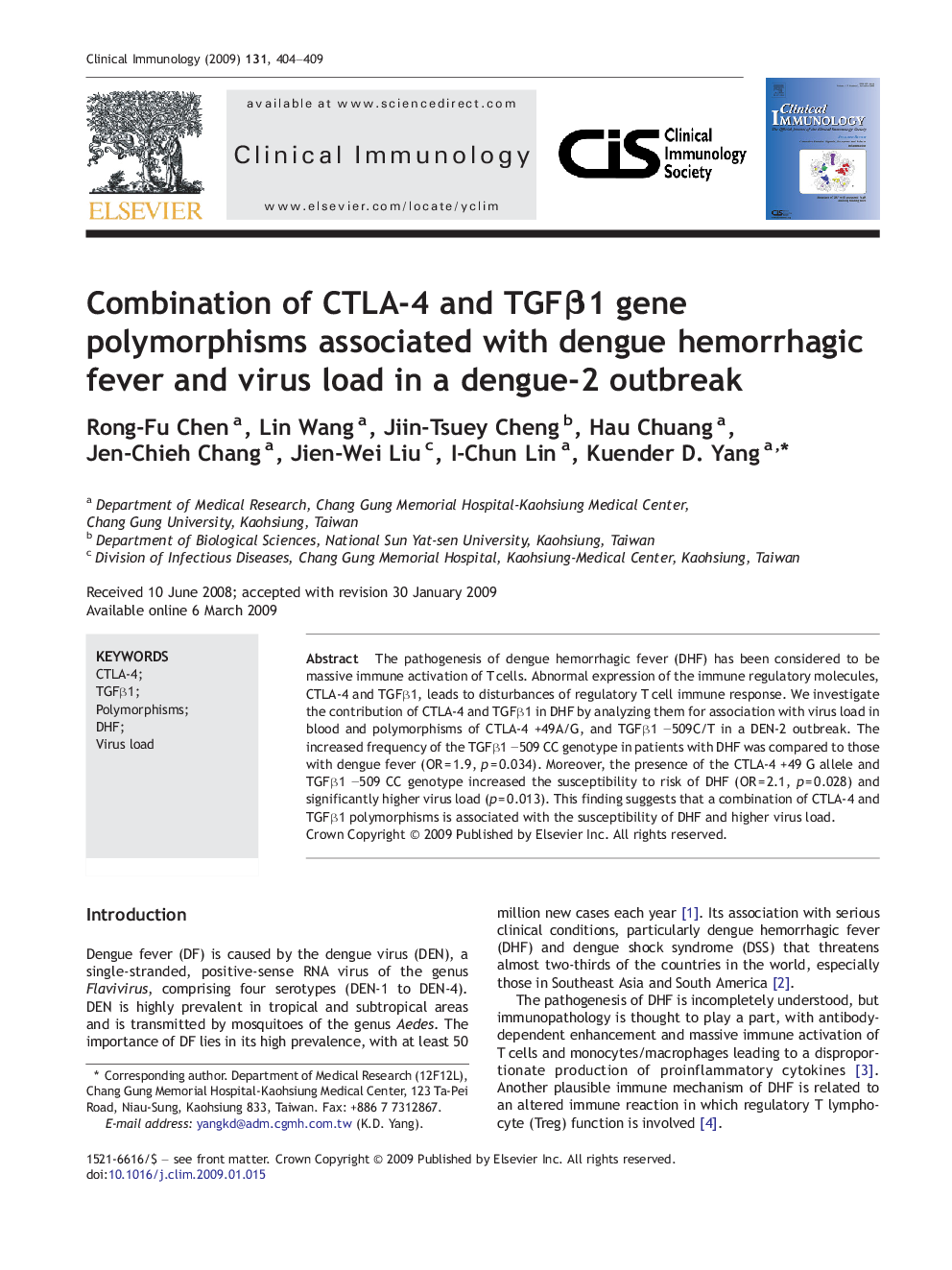| Article ID | Journal | Published Year | Pages | File Type |
|---|---|---|---|---|
| 3257480 | Clinical Immunology | 2009 | 6 Pages |
The pathogenesis of dengue hemorrhagic fever (DHF) has been considered to be massive immune activation of T cells. Abnormal expression of the immune regulatory molecules, CTLA-4 and TGFβ1, leads to disturbances of regulatory T cell immune response. We investigate the contribution of CTLA-4 and TGFβ1 in DHF by analyzing them for association with virus load in blood and polymorphisms of CTLA-4 +49A/G, and TGFβ1 −509C/T in a DEN-2 outbreak. The increased frequency of the TGFβ1 −509 CC genotype in patients with DHF was compared to those with dengue fever (OR = 1.9, p = 0.034). Moreover, the presence of the CTLA-4 +49 G allele and TGFβ1 −509 CC genotype increased the susceptibility to risk of DHF (OR = 2.1, p = 0.028) and significantly higher virus load (p = 0.013). This finding suggests that a combination of CTLA-4 and TGFβ1 polymorphisms is associated with the susceptibility of DHF and higher virus load.
